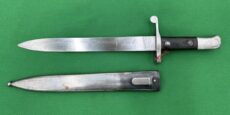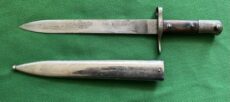Portugal
The military history of Portugal during the 19th and 20th centuries is marked by significant events, conflicts, and transformations. Let’s explore some key aspects:
- Peninsular War (1807–1814):
- During the Napoleonic Wars, Portugal played a crucial role. French troops, led by General Junot, invaded Portugal in 1807 after the Portuguese government refused to participate in Napoleon’s Continental System.
- The subsequent Peninsular War saw British and Portuguese forces resisting French occupation. The famous Lines of Torres Vedras, a defensive system built around Lisbon, helped thwart French advances.
- Liberal Wars (1832–1834):
- The Liberal Wars were a series of civil conflicts between liberals (supporters of constitutional monarchy) and absolutists (supporters of absolute monarchy).
- Dom Pedro IV (also known as Pedro I of Brazil) led liberal forces against his brother Dom Miguel, who sought to establish an absolutist regime in Portugal.
- The war ended with the victory of the liberals and the establishment of a constitutional monarchy.
- Colonial Conflicts:
- Portugal faced challenges in its overseas colonies during the 19th and 20th centuries.
- The Scramble for Africa led to territorial disputes with other European powers. Portugal sought to maintain its African colonies, including Angola, Mozambique, and Guinea-Bissau.
- The Portuguese Colonial War (1961–1974) was a protracted conflict in Africa, particularly in Angola, Mozambique, and Guinea-Bissau. It was marked by guerrilla warfare and nationalist movements seeking independence.

- Carnation Revolution (1974):
- In April 1974, a peaceful military coup known as the Carnation Revolution overthrew the authoritarian Estado Novo regime.
- The revolution resulted in democratic reforms, decolonization efforts, and the end of colonial wars.
- Angola gained independence in 1975, followed by Mozambique and other colonies.
- Modernization and NATO Membership:
- Post-revolutionary Portugal focused on modernizing its armed forces.
- In 1986, Portugal joined NATO (North Atlantic Treaty Organization), strengthening its security ties with Western allies.
- Peacekeeping Missions and International Cooperation:
- Portugal actively participated in UN peacekeeping missions worldwide.
- Its military contributed to peacekeeping efforts in places like East Timor, Bosnia-Herzegovina, Kosovo, and Afghanistan.
The military history of Portugal during the 19th and 20th centuries is marked by significant events, conflicts, and transformations. Let’s explore some key aspects:
- Peninsular War (1807–1814):
- During the Napoleonic Wars, Portugal played a crucial role. French troops, led by General Junot, invaded Portugal in 1807 after the Portuguese government refused to participate in Napoleon’s Continental System.
- The subsequent Peninsular War saw British and Portuguese forces resisting French occupation. The famous Lines of Torres Vedras, a defensive system built around Lisbon, helped thwart French advances.
- Liberal Wars (1832–1834):
- The Liberal Wars were a series of civil conflicts between liberals (supporters of constitutional monarchy) and absolutists (supporters of absolute monarchy).
- Dom Pedro IV (also known as Pedro I of Brazil) led liberal forces against his brother Dom Miguel, who sought to establish an absolutist regime in Portugal.
- The war ended with the victory of the liberals and the establishment of a constitutional monarchy.
- Colonial Conflicts:
- Portugal faced challenges in its overseas colonies during the 19th and 20th centuries.
- The Scramble for Africa led to territorial disputes with other European powers. Portugal sought to maintain its African colonies, including Angola, Mozambique, and Guinea-Bissau.
- The Portuguese Colonial War (1961–1974) was a protracted conflict in Africa, particularly in Angola, Mozambique, and Guinea-Bissau. It was marked by guerrilla warfare and nationalist movements seeking independence.
- Carnation Revolution (1974):
- In April 1974, a peaceful military coup known as the Carnation Revolution overthrew the authoritarian Estado Novo regime.
- The revolution resulted in democratic reforms, decolonization efforts, and the end of colonial wars.
- Angola gained independence in 1975, followed by Mozambique and other colonies.
- Modernization and NATO Membership:
- Post-revolutionary Portugal focused on modernizing its armed forces.
- In 1986, Portugal joined NATO (North Atlantic Treaty Organization), strengthening its security ties with Western allies.
- Peacekeeping Missions and International Cooperation:
- Portugal actively participated in UN peacekeeping missions worldwide.
- Its military contributed to peacekeeping efforts in places like East Timor, Bosnia-Herzegovina, Kosovo, and Afghanistan.
Showing all 12 results








